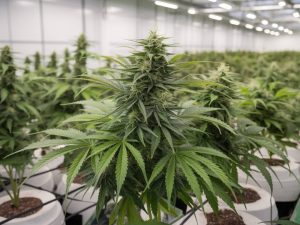In today’s fast-paced business environment, providing employees with access to clean, refreshing water is essential for maintaining productivity and overall well-being. Water coolers have become a staple in offices worldwide, offering a convenient and eco-friendly solution for hydration. This article will explore the various aspects of choosing the right water cooler for your enterprise, helping you make an informed decision that best suits your office needs.
Understanding the Importance of Office Water Coolers
Before delving into the specifics of water cooler selection, it’s crucial to understand why these appliances are so vital in a workplace setting. Water coolers not only provide easy access to drinking water but also serve as informal gathering spots where employees can interact and share ideas. This fosters a sense of community and can boost workplace morale.
Moreover, water coolers promote hydration, which is essential for maintaining focus, energy levels, and overall health. By encouraging employees to drink more water throughout the day, companies can potentially reduce sick days and increase productivity.
Types of Water Coolers for Enterprises
When it comes to office water coolers, there are several types to choose from, each with its own set of advantages and considerations:
Bottled Water Coolers
These traditional coolers use large water bottles that are inverted and placed on top of the unit. They are easy to install and maintain, requiring no plumbing connections. However, they do necessitate regular bottle replacements and storage space for extra bottles.
Point-of-Use (POU) Water Coolers
POU coolers connect directly to the building’s water supply, eliminating the need for bottle replacements. They often include built-in filtration systems to ensure clean, great-tasting water. While they require professional installation, they offer a more sustainable and cost-effective solution in the long run.
Bottleless Water Coolers
Similar to POU coolers, bottleless models connect to the water supply but often come with more advanced filtration systems. These units can provide hot, cold, and room temperature water, catering to various preferences in the office.
Countertop Water Dispensers
Ideal for smaller offices or areas with limited floor space, countertop dispensers offer the same benefits as floor-standing models but in a more compact form. They can be bottled or connected to the water supply, depending on the model.
Factors to Consider When Choosing an Office Water Cooler
Selecting the right water cooler for your enterprise involves considering several key factors:
Water Cooler Capacity and Usage
Determining the right capacity for your office water cooler is crucial to ensure that it meets the needs of your workforce. Consider the following:
By accurately assessing your office’s water needs, you can select a cooler or combination of coolers that will adequately serve your employees without frequent refills or long wait times.
Water Filtration and Purification Options
Clean, safe drinking water is paramount in any office environment. Many modern water coolers come equipped with built-in filtration systems, but the level of filtration can vary significantly. Some common filtration options include:
When selecting a water cooler with filtration capabilities, consider the specific water quality issues in your area and choose a system that addresses these concerns effectively.
Sustainability and Environmental Considerations
As businesses increasingly focus on sustainability, the environmental impact of office water coolers has become an important consideration. Here are some ways to make your water cooler choice more eco-friendly:
By prioritizing sustainability in your water cooler selection, you can reduce your office’s environmental footprint while still providing high-quality drinking water to your employees.
Health and Hygiene Aspects of Office Water Coolers
Maintaining a clean and hygienic water cooler is essential for the health and safety of your employees. Consider the following aspects when selecting and maintaining your office water cooler:
By prioritizing hygiene in your water cooler selection and maintenance, you can help create a healthier work environment for your employees.
Cost Considerations and Return on Investment
While the initial cost of a water cooler is an important factor, it’s equally crucial to consider the long-term expenses and potential return on investment. Here’s what to keep in mind:
By carefully analyzing these factors, you can make a decision that not only fits your budget but also provides long-term benefits for your enterprise.
Making the Final Decision
Choosing the right water cooler for your enterprise involves balancing numerous factors, from capacity and filtration to sustainability and cost. By carefully considering your office’s specific needs and priorities, you can select a solution that will keep your employees hydrated, healthy, and productive.
Remember that the best water cooler for your office is one that meets your unique requirements while aligning with your company’s values and budget. Whether you opt for a traditional bottled cooler, a high-tech POU system, or a combination of different types, the key is to provide your employees with easy access to clean, refreshing water throughout the workday.
Investing in the right water cooler solution is an investment in your workforce’s well-being and your company’s productivity. With the information provided in this guide, you’re now equipped to make an informed decision that will benefit your enterprise for years to come.
More Stories
Comment les nouvelles réglementations ESG en Europe transforment la stratégie des entreprises en 2025
ESG regulation in Europe: why 2025 is a tipping point for corporate strategyIn 2025, environmental, social and governance (ESG) regulation...
How Biotech Startups Are Disrupting the European Healthcare Industry in 2024
The Rise of Biotech Startups in EuropeIn 2024, biotech startups are fundamentally reshaping the European healthcare industry. These young, agile...
Understanding the role of a radiation protection advisor in medical facilities
Understanding the Crucial Role of a Radiation Protection Advisor in Medical Facilities In environments where ionizing radiation is an integral...
The challenges of urban wastewater reuse
Urban wastewater reuse has emerged as a vital strategy in addressing the increasing demand for water resources in urban areas....
Energy transition and decarbonisation: challenges and solutions for businesses
The Imperative of Energy Transition and DecarbonisationIn an era of climate change and environmental consciousness, businesses across the globe are...


